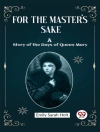In ‘Beyond the Gates, ‘ Elizabeth Stuart Phelps ventures into the realms of spiritualism and womanhood, exploring the intricate relationship between the living and the spiritual world. The novel is structurally innovative for its time, blending emotional depth with philosophical reflections, mirroring the rising societal interest in transcendentalism and the occult during the late 19th century. The narrative is rich with vivid imagery and incorporates a dialogue style that emphasizes introspective contemplation, all while challenging contemporary societal norms regarding gender and spirituality. Elizabeth Stuart Phelps, a prominent figure in the American literary scene, was deeply influenced by the progressive movements of her era, particularly women’s rights and spiritualism. Growing up in a household that valued intellectual discourse, Phelps utilized her writing as a platform not only for creative expression but also for advocating social change. Her experiences and beliefs significantly informed ‘Beyond the Gates, ‘ making it a profound reflection on her quest for understanding life after death and the empowerment of women. Readers seeking an exploration of existential themes through the lens of 19th-century thought will find Phelps’ ‘Beyond the Gates’ an enlightening journey. Engaging, thought-provoking, and spiritually resonant, this work is a must-read for those intrigued by the convergence of literature, feminism, and spirituality.
About the author
Elizabeth Stuart Phelps (1844–1911) was a profound American author and feminist whose literary contributions were ahead of her time. Born Elizabeth Stuart Phelps Ward, she published under the name E. Stuart Phelps until her marriage when she adopted her hyphenated name. Phelps’ writings were characterized by an innovative blend of realism and spiritual inquiry, focusing on themes of religious faith, social reform, and gender roles. Her seminal work, ‘The Gates Ajar’ (1868), dealt with the afterlife, which she further explored in its sequel, ‘Beyond the Gates’ (1883). This book continued her examination of heaven and the possibilities it held, a topic that resonated with readers in the post-Civil War era. Phelps’ fiction often challenged traditional nineteenth-century domestic ideologies, advocating for women’s independence and the importance of personal spiritual experience. Her pioneering writing not only questioned societal norms but also influenced other authors and contributed to progressive social change. Phelps’ legacy includes more than fifty novels and countless short stories and essays. Her literary style and thematic exploration have earned her a respected place in American literature, with scholarly interest in her work enduring well into the twenty-first century.












